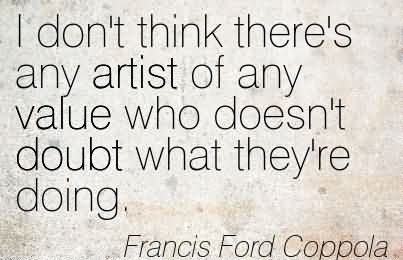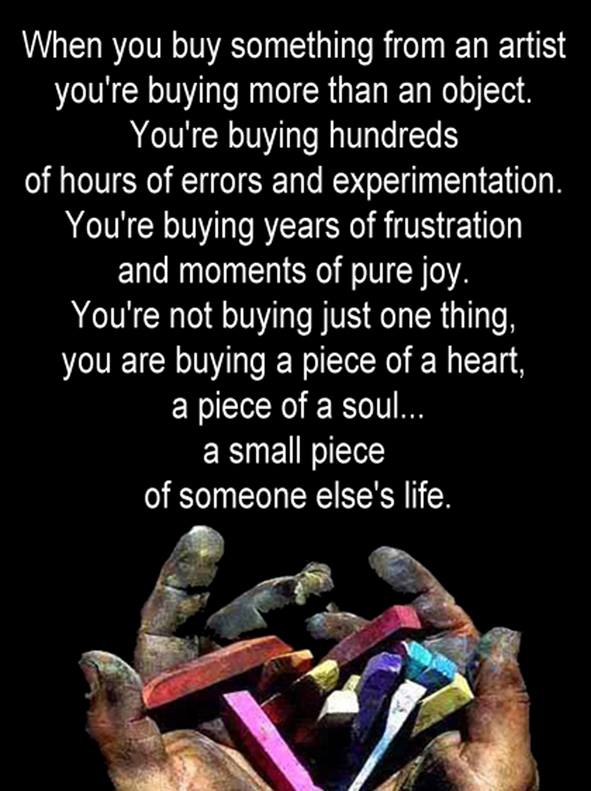Last Thursday I attended critique group. I had two pieces to be worked and one “show and tell”.
I started out explaining I was competing in the 30 Paintings in 30 Days Challenge and showing off this piece.
 Then I showed this piece and explained I didn’t know where to go next.
Then I showed this piece and explained I didn’t know where to go next.
 Here’s what I did with their suggestions.
Here’s what I did with their suggestions.
 I’m still not done, but at least progress is happening.
I’m still not done, but at least progress is happening.
Finally, I showed them this painting.
 I explained I was interested in going bigger and asked for thoughts. This crop was suggested.
I explained I was interested in going bigger and asked for thoughts. This crop was suggested.
 If I decide to go bigger, I know where to go.
If I decide to go bigger, I know where to go.
The value
I’ve been debating whether to go further with this post… and I’m gotta do it.
While we were discussing a piece (painted by a very, VERY talented artist who has been painting a long time, and in fact someone I have taken a class from) a woman who lives in the building came in and listened to our comments (our group meets in a retirement home that has a big, “public” art area for residents.) This particular woman, who apparently lives in this retirement community, has walked into our group before.
 But let me step back a minute and explain about critique group.
But let me step back a minute and explain about critique group.
The idea of critique group is that a group of painters (or writers, or sculptors, or jugglers…) gets together and combines their expertise to improve their skills. Most critique groups follow a format of one painter puts up a recent work, everyone studies it, then make suggestions. The painter may or may not decide to follow the suggestions.
The best critique groups are very impersonal (at least about the art part.) Members may know that other members prefer a certain subject, color palette, or technique, but they bring an analytic eye to the process and discuss widely agreed upon principles of art. The poster below covers most of them, though some may be added or subtracted.
 More experienced painters may also bring knowledge of how jurors look at art or what is likely to be accepted into a show.
More experienced painters may also bring knowledge of how jurors look at art or what is likely to be accepted into a show.
The main point is that critique-ers are not criticizing the piece or the artist; they are critiquing.
Critique ~ [kri-teek] (noun)
1. an article or essay criticizing a literary or other work; detailed evaluation; review.
2. a criticism or critical comment on some problem, subject, etc.
3. the art or practice of criticism.
verb (used with object), critiqued, critiquing.
4. to review or analyze critically.
There is an element of trust to this process. There is a trust (sometimes hard to establish and keep) that criticizing is NOT happening; that any comments are made from a place of wanting to improve the piece; that the critique-er knows what they are talking about. And there is a trust that everyone has the best of intentions.
If the artist feels vulnerable, so does the critique-er because they know that if their suggestion is NOT taken it shows a lack of faith in that suggestion (and maybe in the critique-er themself.) Additionally, every artist has the opportunity to put up their work, so the whole group is in the same boat of laying themselves bare.
Into this seen walks a random woman who:
- Is not part of this group
- Is not an artist
- Has not been invited / accepted into the group
While completely distracting everyone by moving around the room, she listens to our comments and then boldly announces —
 She tells us that the piece is wonderful and that if she could paint like that she wouldn’t change a thing. That the piece reminds her of (insert a name of famous painter here) and that she met this painter and therefore is qualified to judge the piece is PERFECT!
She tells us that the piece is wonderful and that if she could paint like that she wouldn’t change a thing. That the piece reminds her of (insert a name of famous painter here) and that she met this painter and therefore is qualified to judge the piece is PERFECT!
Here’s the thing. This incident goes beyond annoying. It’s insulting.
The Insult
Why is it insulting?
It’s insulting to the artist who has spent hours on the painting and still knows something is off and can’t quite find it on her own.
It’s insulting because it devalues ALL the time and effort the artist has spent getting it to a stage where she is willing to ask: “What should I do?”
It’s insulting because it says the artist is not qualified to judge her own work.
And last of all it’s insulting to the group, not because our opinions are overridden (the artist can make that choice herself,) but because this interloper is negating the trust we have worked so hard to establish.
Here’s the thing, though, that I’ve really been thinking about over the last few days.
It’s insulting because it implies that artists have no need to develop their talent.
To try to clarify my point, I went online to find some quotes about this.
 But the one that comes closest is this.
But the one that comes closest is this.
 So I Shouldn’t Compliment An Artist?
So I Shouldn’t Compliment An Artist?
I finished this blog, went to bed, and knew I needed to clarify this last point.
No. Please, if you like an artist, tell them. Or better yet, purchase their work. Unless you are part of that artist’s critique group, you are seeing works the artist has judged “ready” and “finished.” The work has been done and the artist is prepared. While I wouldn’t suggest it, the artist is ready for any criticism that come their way. They are ready to answer questions and describe the process.Compliment anything you like about the work: color, content, creativeness. Ask the artist what inspired the piece.
 But don’t assume that the artist is just cruising on talent. Remember, no matter how talented that artist is, a lot of hard work went into what you are admiring. Respect that.
But don’t assume that the artist is just cruising on talent. Remember, no matter how talented that artist is, a lot of hard work went into what you are admiring. Respect that.


